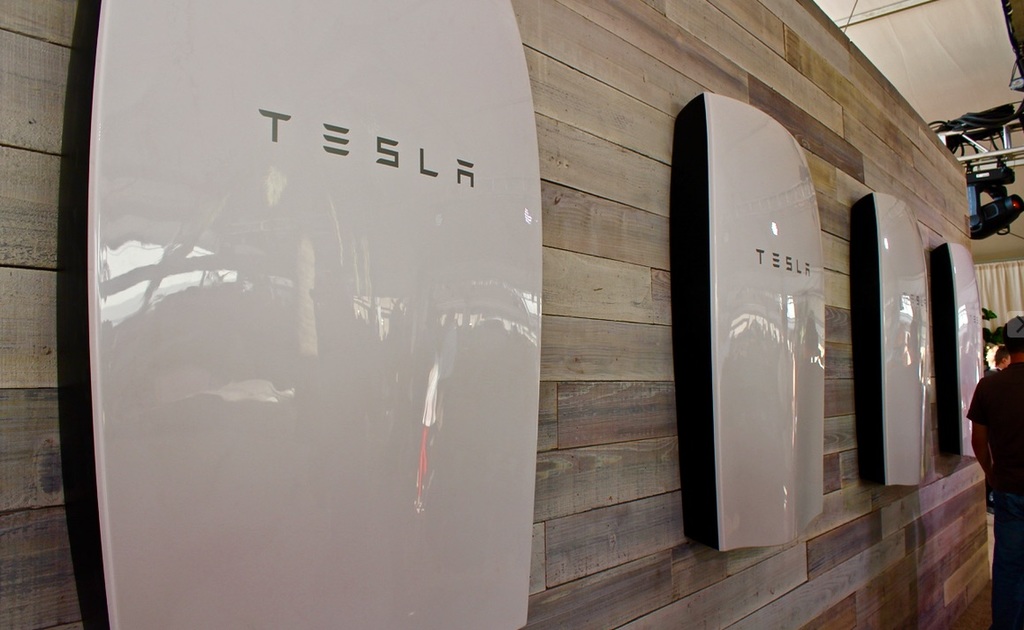Updated: 16 January 2020
This information has been prepared with consumer safety in mind to answer some common questions about energy storage, and points to further sources of information that may be helpful to those using a battery storage system. It is aimed at those who have purchased or are considering purchasing energy storage, and therefore already have some knowledge or experience. However, it also provides some limited background information on batteries to ensure that consumers are appropriately informed.

These common questions are intended as a brief overview of the safety considerations involved in battery storage in residential and small commercial applications (e.g. 1 kWh to 200 kWh in size).
- What does a battery storage system look like?
A battery storage system for a typical residential home looks like a small fridge or hot water system. For small commercial applications, they can be larger ranging in size from a large fridge to a 20-foot shipping container. - How does a battery storage system work?
Battery storage uses a chemical process to store electrical energy, which can then be used at a later time. For example, a solar-powered torch stores electrochemical energy during the daylight hours that can be used to provide light at night. - What are the benefits of battery storage?
The increasing number of solar panel installations in households around Australia is providing a new market opportunity for energy storage. Large batteries or multiple batteries joined together in battery banks can store the energy produced by solar panels. The household can then use that stored energy at a later time, or sell it back to the electrical grid. For home owners, there are three main benefits of storing energy:- maximise energy savings (by being able to store the solar energy and thus use it more effectively)
- offset consumer feed-in tariffs (by being able to avoid using the grid at peak times when electricity is more expensive)
- provide continuity of supply (if the site has unreliable grid supply).
- Is battery storage safe?
Battery storage is perfectly safe if it is used properly and is well looked after. There are potential risks, but these are no different to the many electrical hazards already present in the modern home. However, it is important to be aware of the risks so they can be properly managed.
Safety aspects of battery storage to consider include:- general hazards of electrical wiring (as are already present in your premises)
- chemical and fire or explosion hazards (these are similar to the hazards associated with bottled gas or a natural gas service)
- possible escape of nonflammable gases when charging or discharging lithium batteries (which may cause risks of inhaling noxious gas that are similar to those of a natural gas leak if there is no ventilation)
- production of chemical leakages (similar to those from the corrosive fluid of a car battery or household chemical cleaning products).
- What types of battery storage are available, and which is the best?
The main options currently available for household energy storage are lead-acid and lithium-ion batteries. Both of these are described in below question 'Which type of battery is right for me?'.
Other less common options include nickel-cadmium, nickel-metal hydride and flow batteries. The latter may be more costly, but can still offer value, depending on how much energy you want to store and how you want to store it. The best battery storage for a given situation will depend on a number of factors. To work out which option is right for you. - Can I go off grid?
Installing battery storage in your home does not necessarily mean that you can disconnect completely from the electrical grid. Generally speaking, going off grid is not practical for the average urban consumer because:- it might be difficult to store enough energy to reliably cover your use during cloudy days in winter
- you would not be able to sell any surplus energy back to the grid
- there are likely to be significant extra costs (e.g. special additional equipment like the installation of an air-conditioning system) for the battery enclosure.http://www.solaraccreditation.com.au/consumers/solar-battery-storage-faqs.html
